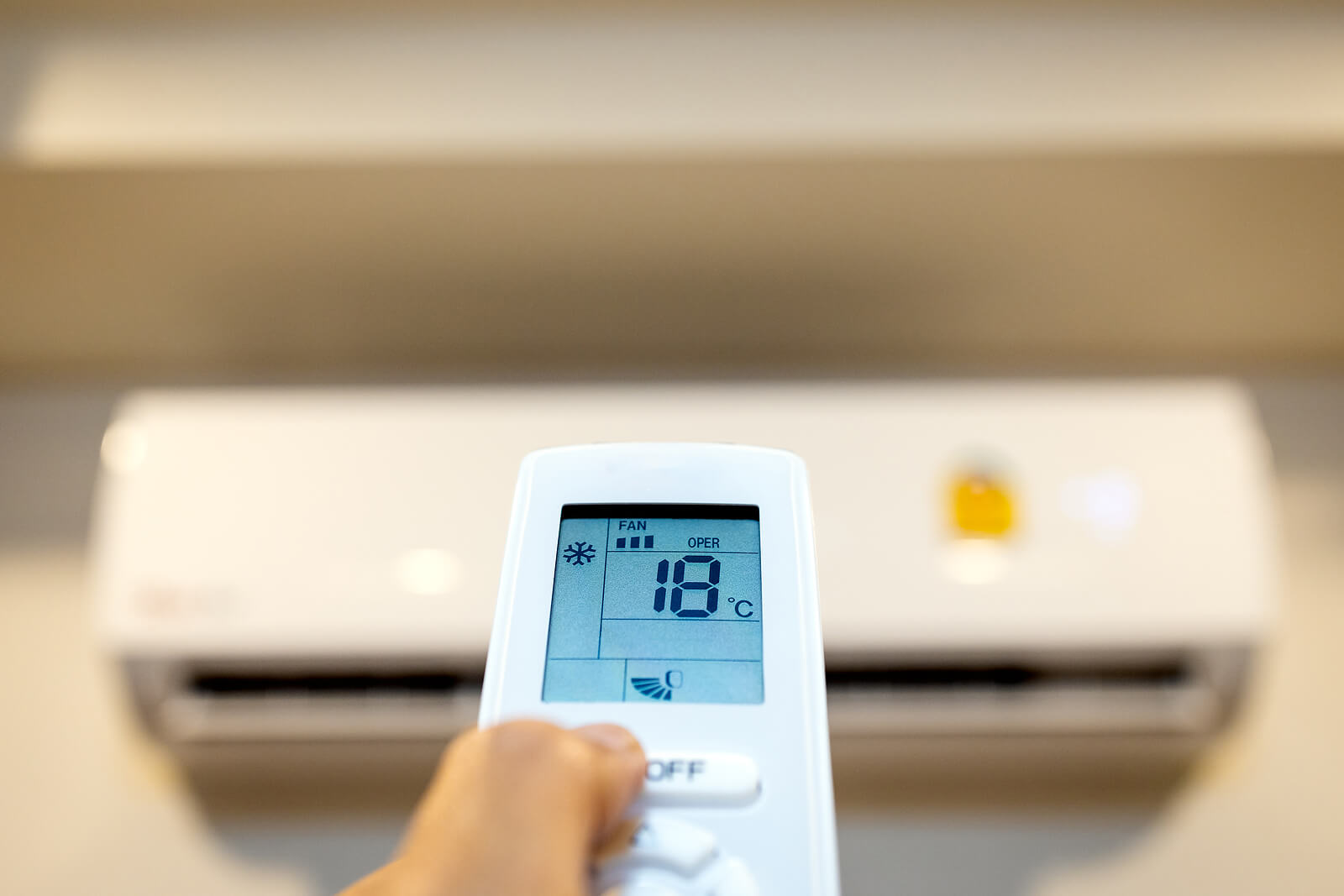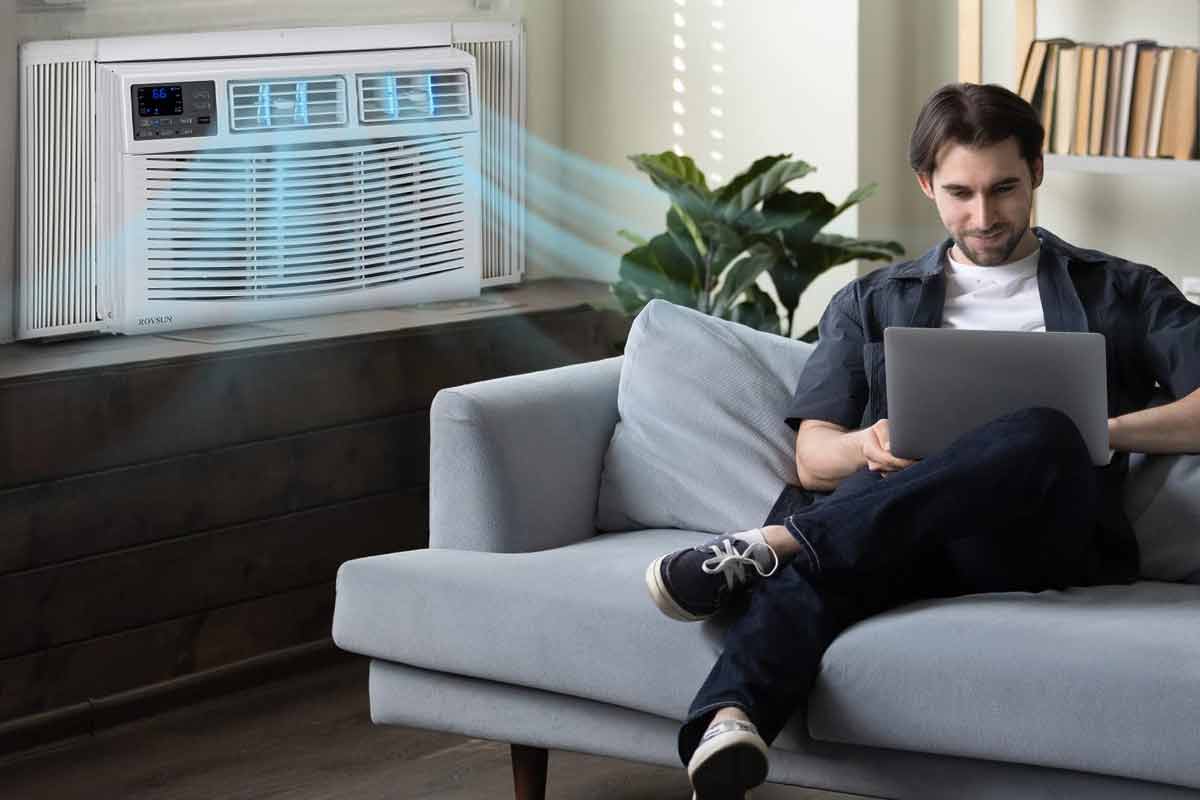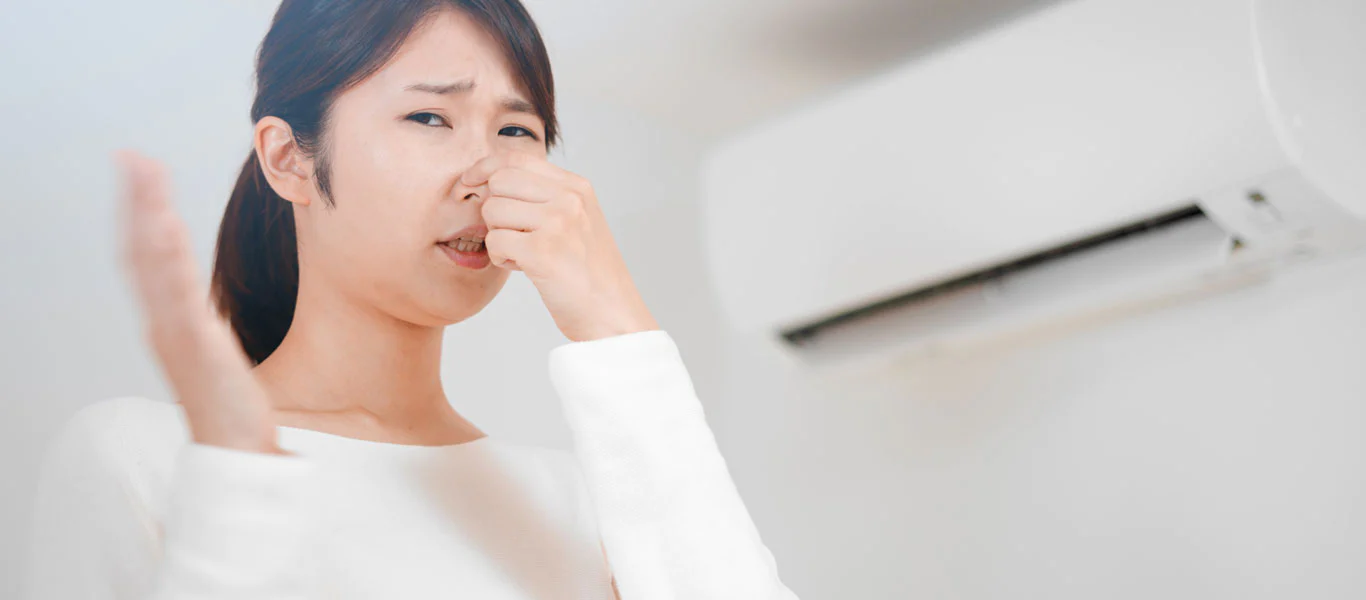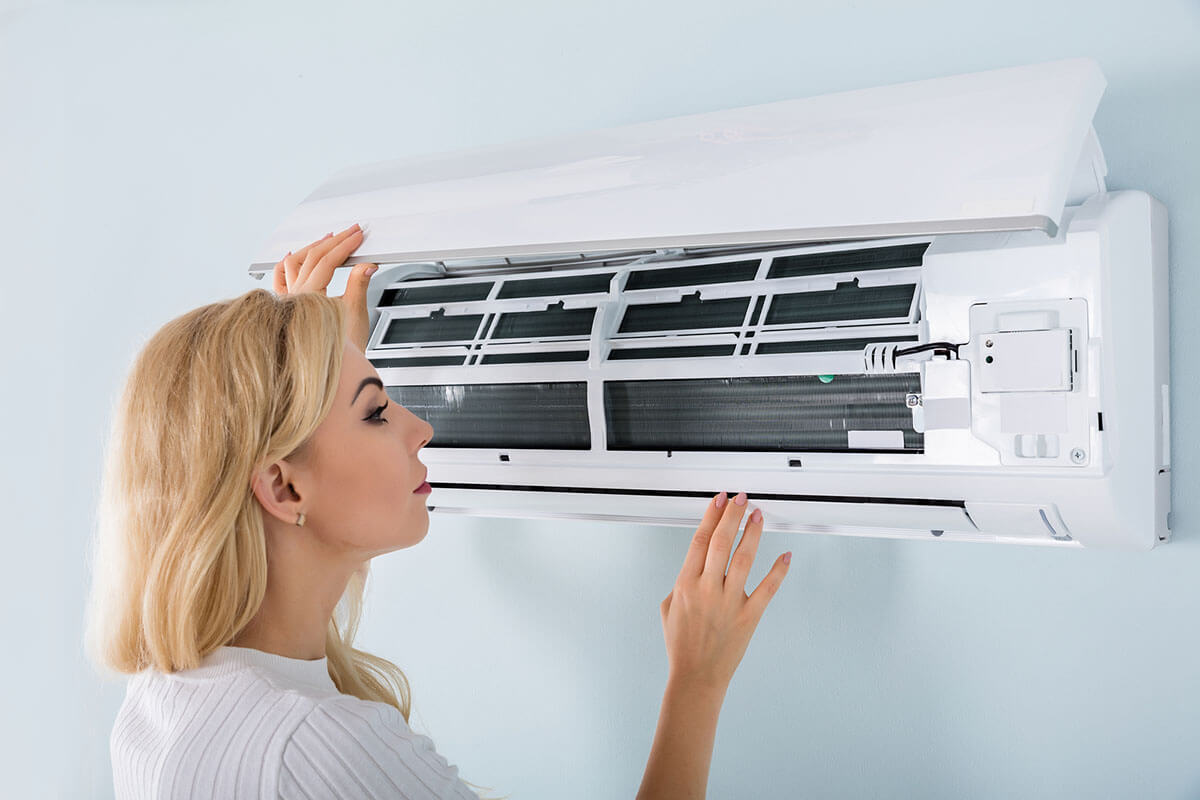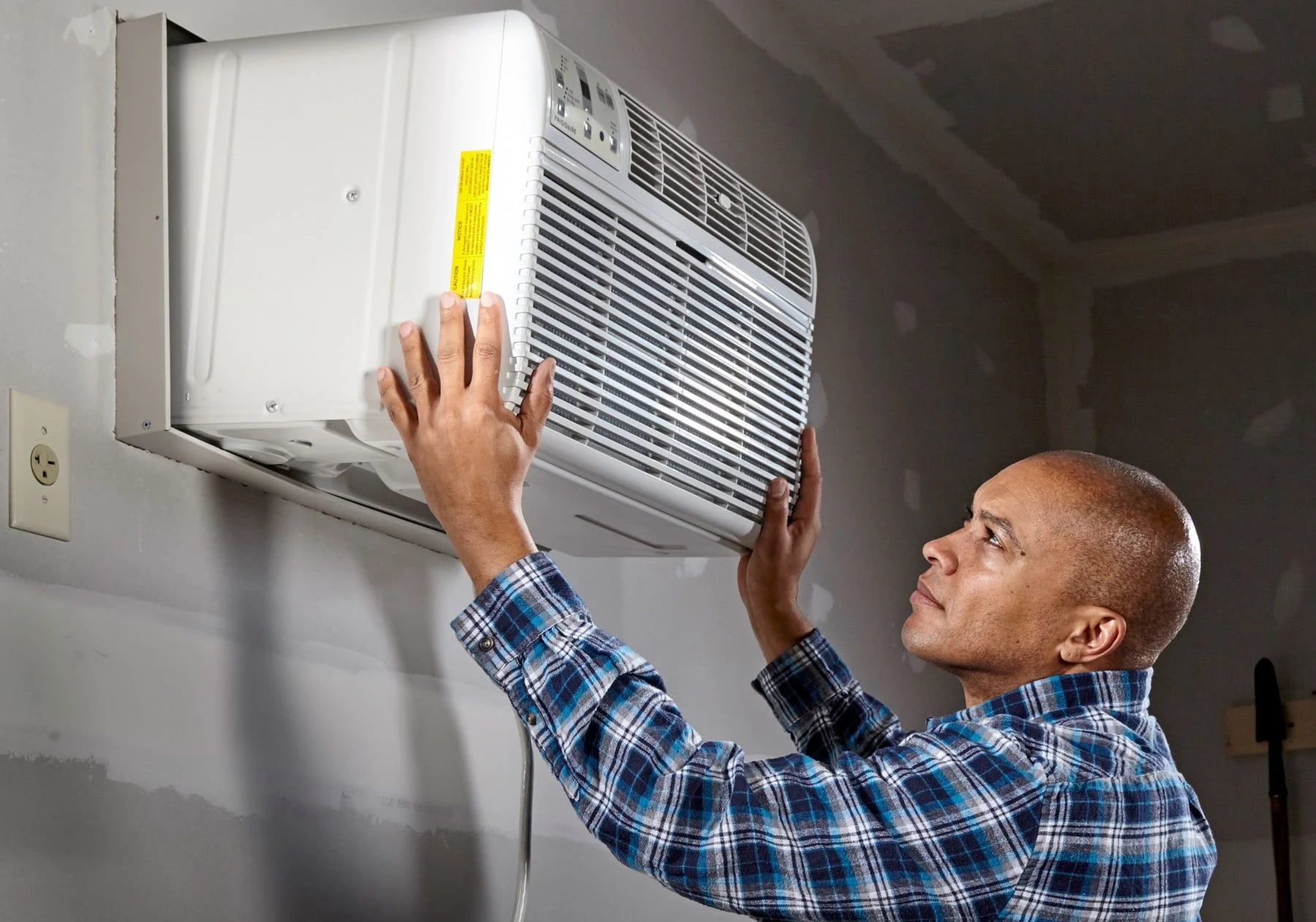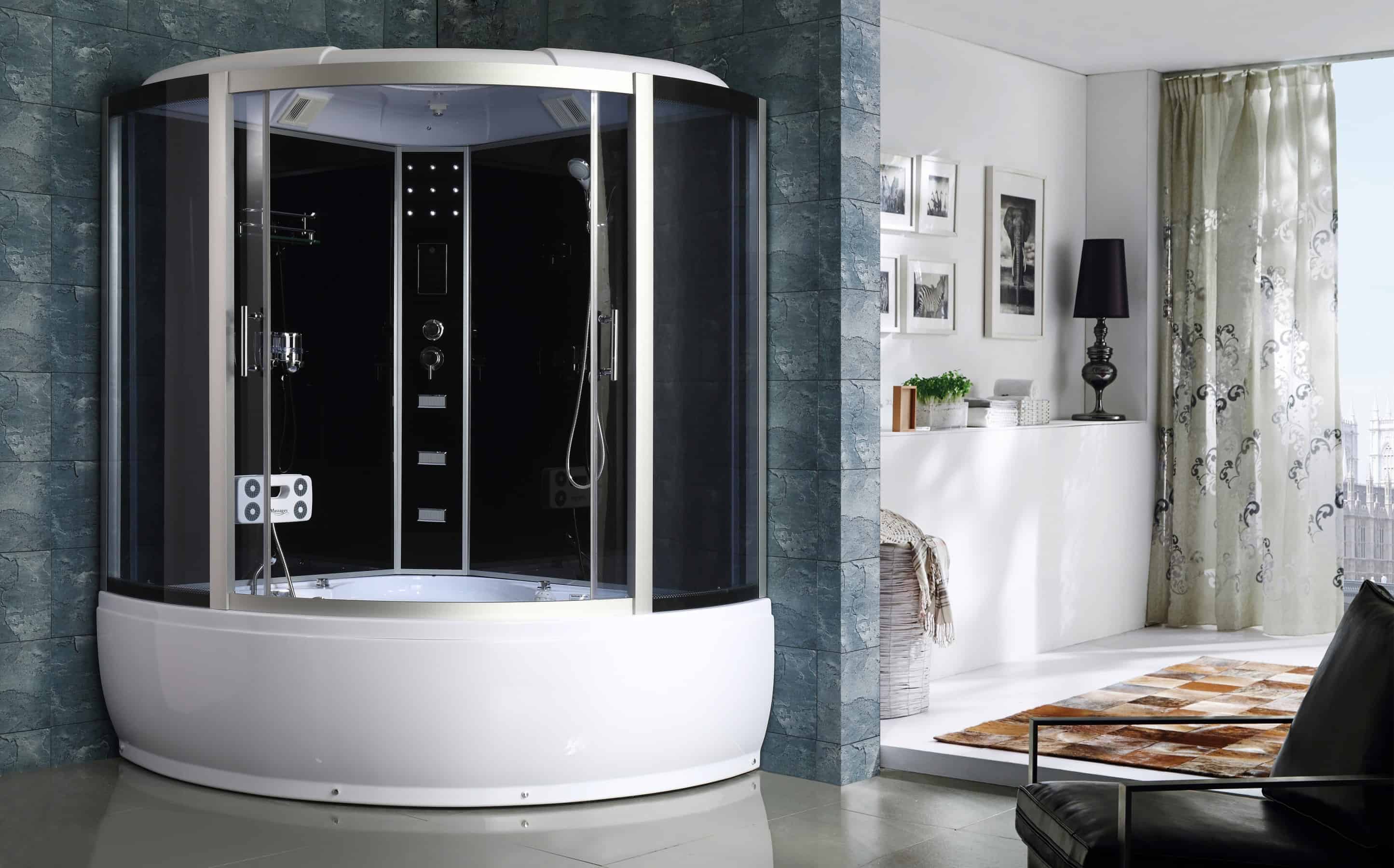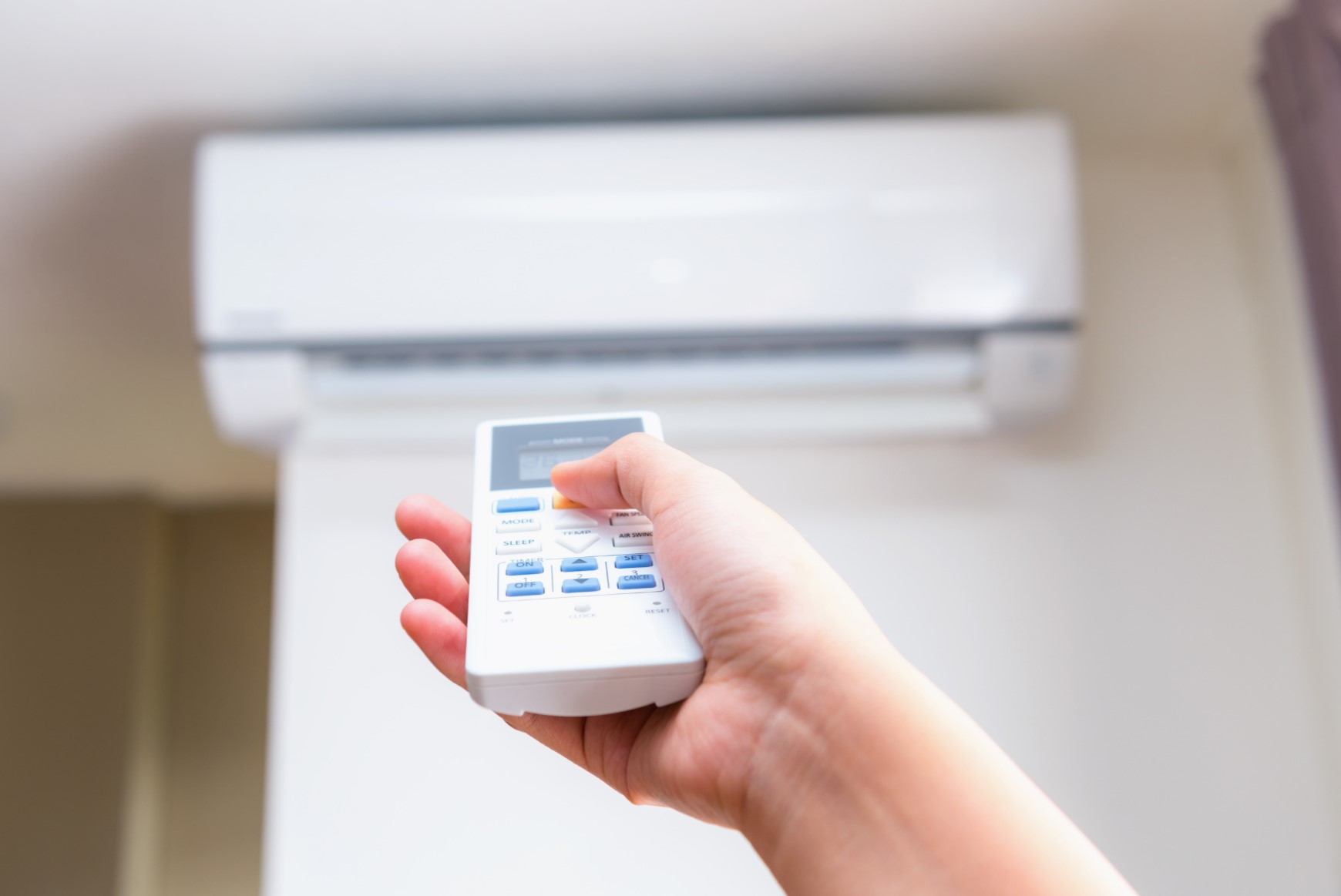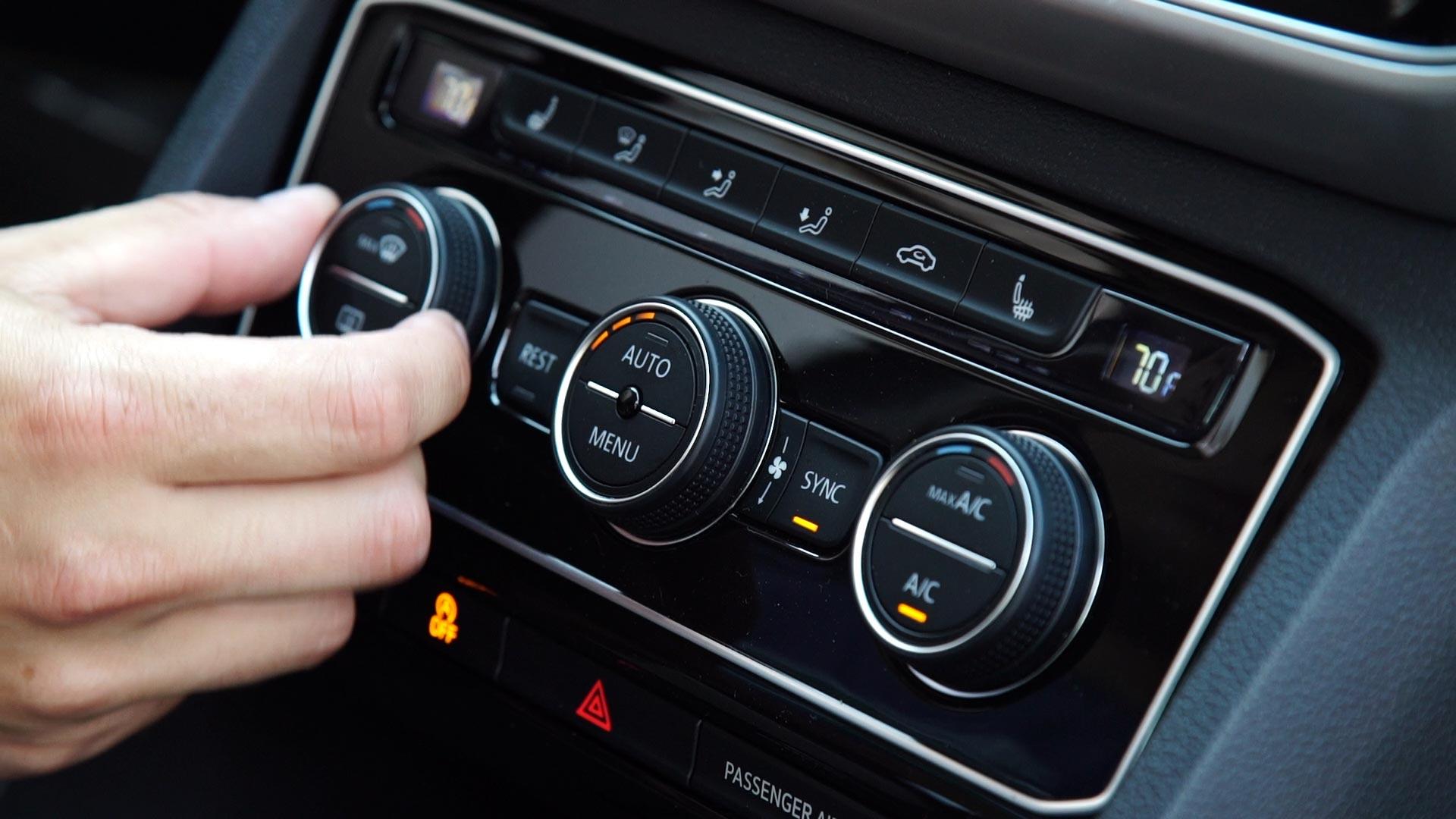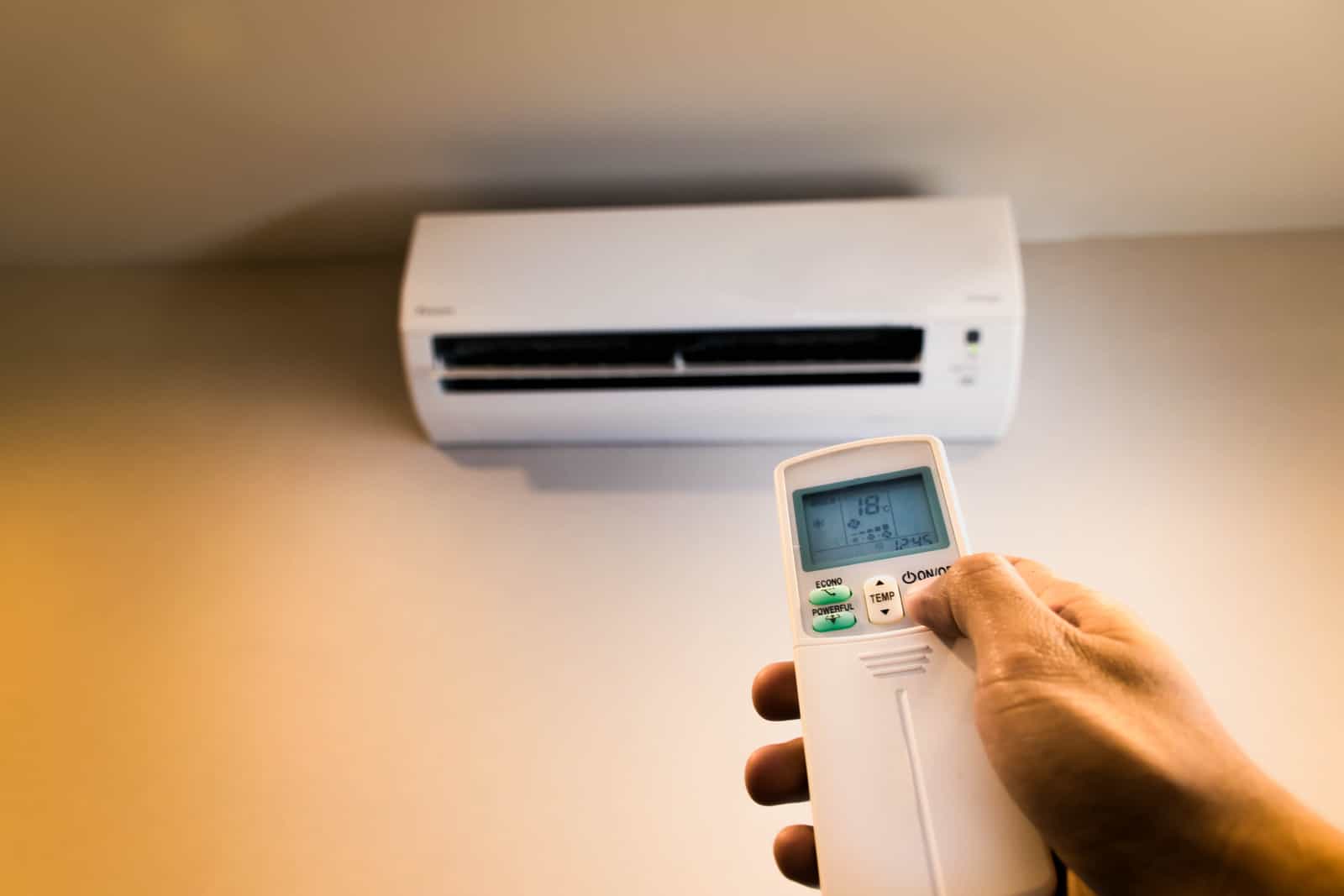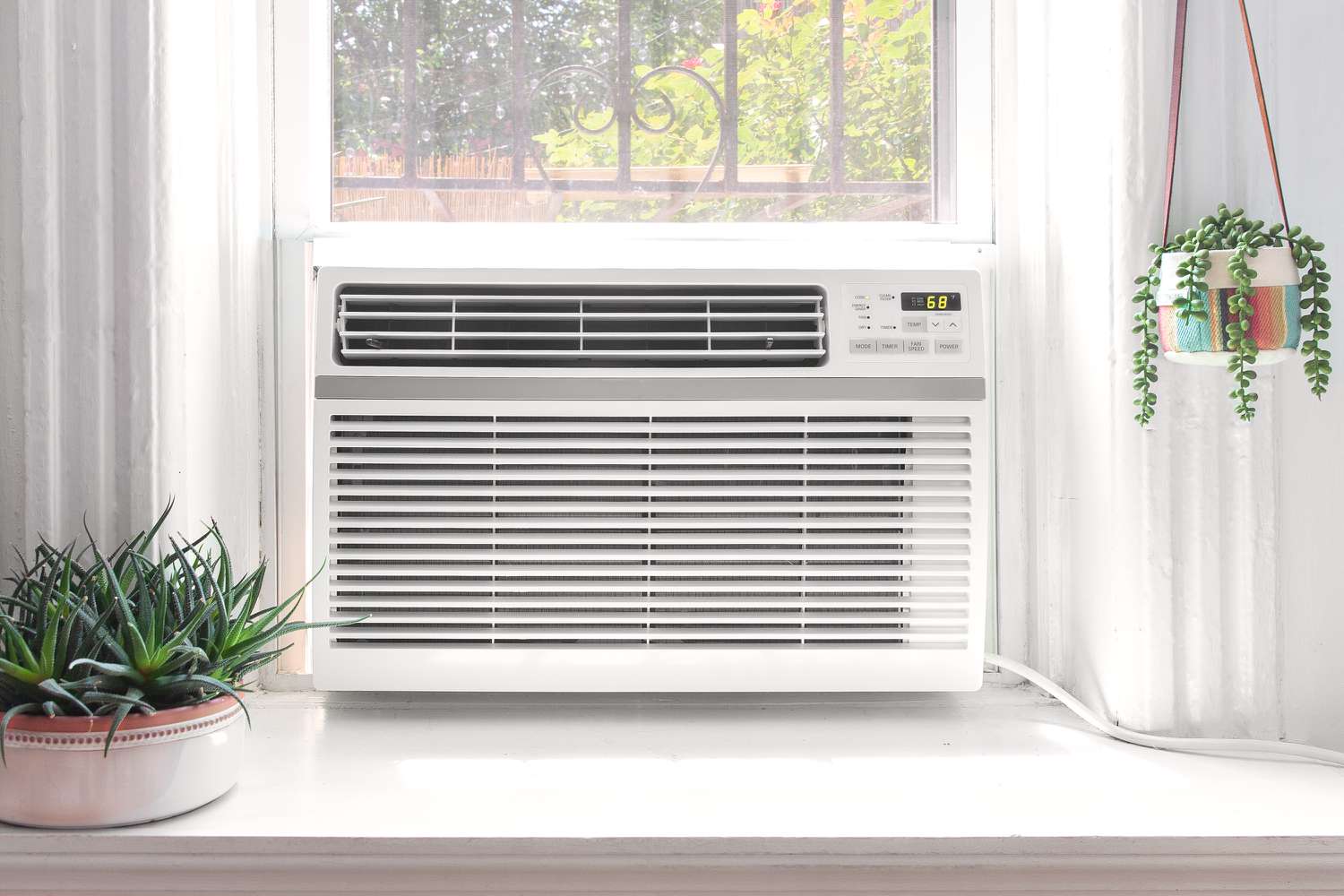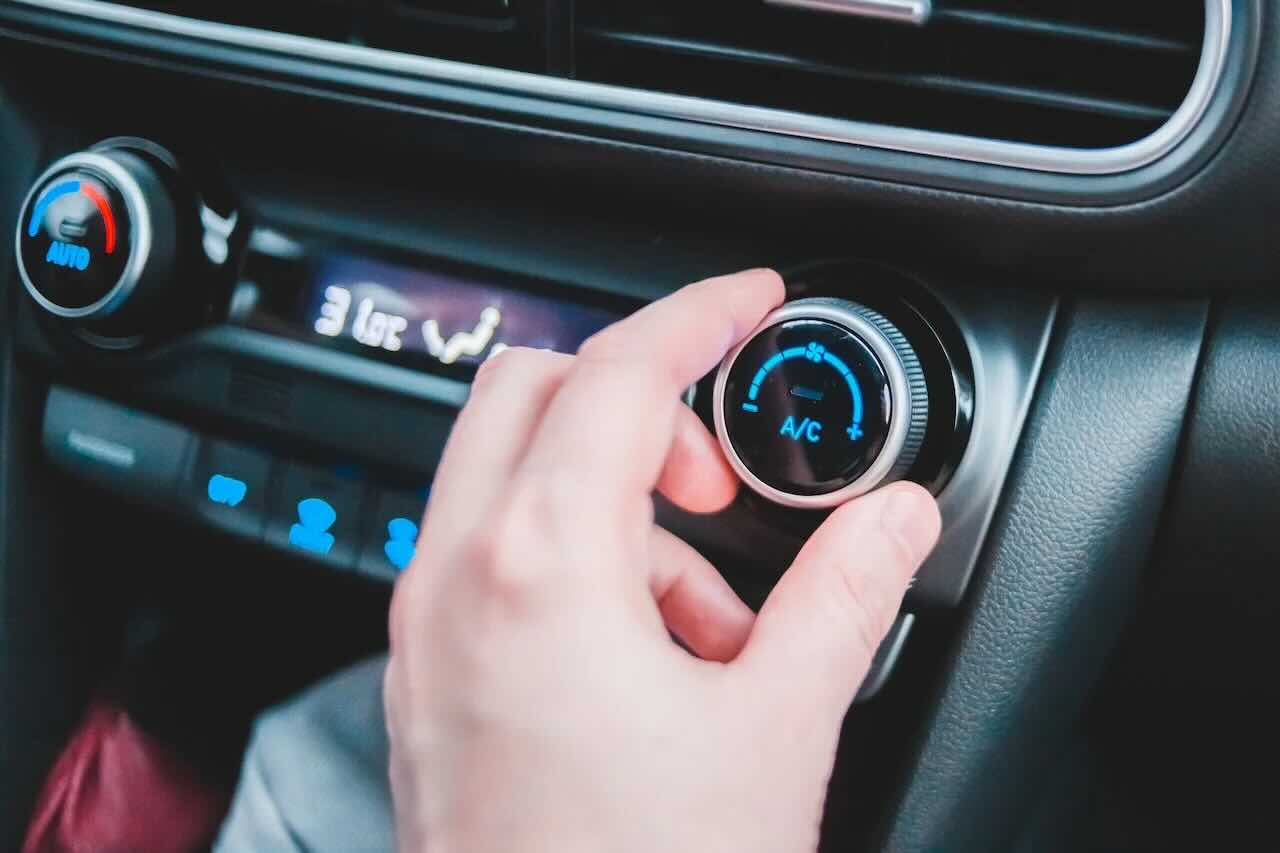Home>Home Maintenance>When I Turn On My Air Conditioner, It Smells
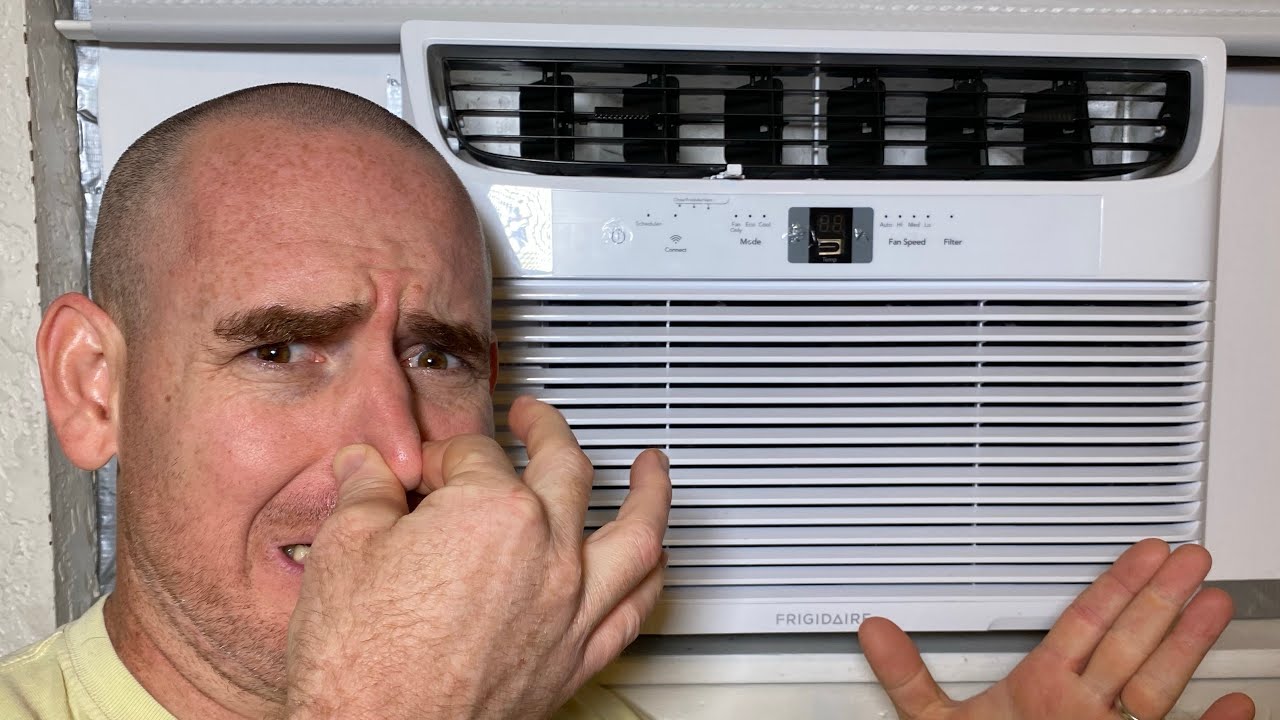

Home Maintenance
When I Turn On My Air Conditioner, It Smells
Modified: August 30, 2024
Solve the issue of unpleasant odors when turning on your air conditioner with effective home maintenance tips. Avoid the smell and keep your home fresh and comfortable.
(Many of the links in this article redirect to a specific reviewed product. Your purchase of these products through affiliate links helps to generate commission for Storables.com, at no extra cost. Learn more)
Introduction
Welcome to the world of home maintenance, where keeping our living spaces clean, functional, and comfortable is a top priority. One essential aspect of maintaining a comfortable home is ensuring our air conditioning systems are in proper working order. However, there may be instances when turning on the air conditioner results in an unpleasant odor filling the room. This can be quite a disappointment, especially on a hot summer day when all you want is to enjoy some cool refreshing air.
But fret not! In this article, we will explore the common causes of why your air conditioner may emit an odor when turned on and provide you with actionable steps to get rid of that smell. By understanding these causes and implementing the right solutions, you can ensure that your air conditioner not only provides cool air but also creates a fresh and pleasant environment within your home.
Key Takeaways:
- Keep your air conditioner odor-free by cleaning or replacing air filters regularly, maintaining a clean unit and surroundings, and scheduling annual maintenance with a professional HVAC technician.
- Address odor issues by tackling moisture buildup, mold growth, and debris accumulation, and be mindful of using mild cleaning products and ensuring proper ventilation.
Common Causes of Odor when Turning on an Air Conditioner
When you turn on your air conditioner and a foul smell permeates the room, it can be quite unpleasant. Understanding the common causes of this odor can help you identify the issue and take appropriate action to eliminate it. Here are some of the most frequent culprits behind the unpleasant smell when you turn on your air conditioner:
- Accumulated Moisture in the System: Air conditioners rely on condensation to remove excess moisture from the air. However, if there is an issue with the drainage system or the unit isn’t properly maintained, moisture can accumulate in the system. This stagnant water can cause a musty odor when the unit is turned on.
- Mold and Mildew Growth: Air conditioners provide a cool, dark, and damp environment that is ideal for mold and mildew growth. If moisture is not properly drained or the unit is not regularly cleaned, mold and mildew can start to grow on the coils or in the drip tray, resulting in a foul smell when you turn on the air conditioner.
- Dirty or Clogged Air Filters: Air filters are essential components of an air conditioner as they trap dust, pollen, and other particles from the air. When these filters become dirty or clogged, they can develop a musty odor. Additionally, the lack of proper airflow due to dirty filters can lead to excess moisture and mold growth, contributing to the unpleasant smell.
- Decomposing Animal or Insect Matter: It’s not uncommon for small animals or insects to find their way into HVAC systems and eventually meet an unfortunate demise. If the smell is reminiscent of decay or rot, it’s possible that there is decomposing animal or insect matter within the system.
- Chemical Odors from Cleaning Products or Air Fresheners: Sometimes, the odor from your air conditioner might not be due to a malfunction or underlying issue but rather the result of chemicals from cleaning products or air fresheners. These products can react with the components of the unit or produce a strong scent that is released when the air conditioner is turned on.
Now that we have identified some of the common causes of odor when turning on an air conditioner, let’s explore how to deal with each of these issues effectively.
Accumulated Moisture in the System
One of the common causes of an unpleasant odor when you turn on your air conditioner is accumulated moisture in the system. Air conditioners rely on condensation to remove excess moisture from the air, but if there is a problem with the drainage system or the unit isn’t properly maintained, moisture can start to accumulate.
This stagnant water can lead to a musty odor when the air conditioner is turned on. If you notice a damp or musky smell when you start your AC, it’s likely due to this moisture buildup.
To address this issue and eliminate the odor, you can take the following steps:
- Clean the Drainage System: Start by inspecting the drainage system of your air conditioner. Look for any clogs or blockages in the drainpipe or condensate line. Clear away any debris or buildup that might be obstructing the proper flow of water. You can use a wire brush or a small snake tool to gently remove any blockages.
- Check the Condensate Pan: The condensate pan collects the water that is drained from the system. Over time, this pan can become dirty or develop mold growth, leading to a foul odor. Remove the condensate pan from the unit and clean it thoroughly with warm water and mild detergent. Make sure to dry it completely before reattaching it to the air conditioner.
- Consider Using an Algaecide: If you live in a particularly humid environment or notice recurring moisture-related issues, you might want to consider using an algaecide in your AC system. Algaecides help inhibit the growth of algae and mold in the drain lines, preventing moisture buildup and associated odors.
- Schedule Regular Maintenance: To prevent moisture accumulation in your air conditioner, it’s essential to schedule regular maintenance. Professional HVAC technicians can clean and inspect your system, ensuring that it functions optimally and that any potential drainage issues are addressed.
By taking these steps, you can effectively address the issue of accumulated moisture in your air conditioner and eliminate the unpleasant odor that accompanies it.
Mold and Mildew Growth
If you notice a strong, musty odor when you turn on your air conditioner, it is likely that mold and mildew have started to grow within the system. Air conditioners provide a cool, dark, and damp environment—ideal conditions for mold and mildew to thrive.
To tackle the issue of mold and mildew growth and eliminate the accompanying odor, follow these steps:
- Clean and Disinfect the Air Conditioner: Start by turning off the power to the air conditioner. Remove the front cover and any removable parts, such as the air filter. Use a soft brush or vacuum cleaner with a brush attachment to remove dust, dirt, and any visible mold or mildew from the internal components. Next, use a mixture of water and mild detergent to wipe down the inner surfaces of the unit.
- Use a Mold and Mildew Remover: After cleaning, you can use a commercially available mold and mildew remover. Follow the instructions on the product carefully and apply it to areas where you suspect mold or mildew growth. Be sure to use a mold and mildew remover that is safe for use on air conditioning systems.
- Replace or Clean the Air Filter: A dirty or clogged air filter can contribute to mold and mildew growth and the accompanying odor. Remove the old air filter and replace it with a new one. If your air filter is reusable, clean it thoroughly according to the manufacturer’s instructions before reinstalling it.
- Improve Ventilation and Reduce Humidity: Mold and mildew thrive in humid conditions. To inhibit their growth, ensure adequate ventilation in the room where the air conditioner is located. Use dehumidifiers or open windows and doors when weather permits to reduce moisture levels and discourage mold and mildew growth.
- Consider UV Treatment: Installing a UV light in the air conditioning system can help eliminate mold, mildew, and other airborne pathogens. UV lights emit ultraviolet radiation that kills bacteria, mold, and viruses. Consult with a professional HVAC technician to determine if UV treatment is suitable for your air conditioning system.
Regularly performing these maintenance tasks and taking preventive measures can help eliminate mold and mildew growth within your air conditioner and prevent the accompanying foul odor.
Dirty or Clogged Air Filters
A common cause of odor when turning on an air conditioner is dirty or clogged air filters. Air filters are an essential component of the system as they trap dust, pollen, and other particles from the air, ensuring clean and healthy indoor air quality.
Over time, these filters can become dirty and clogged, hindering proper airflow and causing various issues, including a musty odor. When the air conditioner is turned on, the stagnant air passing through the dirty filter can release unpleasant odors into the room.
To address this issue and eliminate the odor, follow these steps:
- Locate and Remove the Air Filter: First, you need to locate the air filter in your air conditioning system. Usually, it is located behind the front cover, in the return air grille, or in a slot on the indoor unit. Carefully remove the air filter from its housing.
- Inspect the Air Filter: Examine the air filter for any visible dirt, dust, or debris. If the filter appears dirty or clogged, it’s time for a cleaning or replacement.
- Clean the Air Filter: If you have a reusable air filter, follow the manufacturer’s instructions to clean it. Typically, this involves rinsing the filter with water and mild soap, being careful not to damage the filter’s delicate material. Once cleaned, allow the filter to dry completely before reinserting it into the air conditioner.
- Replace the Air Filter: If your air filter is disposable or too dirty to clean effectively, it’s time to replace it with a new one. Look for the appropriate size and type of air filter recommended for your specific air conditioning system. Slide the new filter into the designated slot or housing, ensuring it is securely in place.
- Regular Filter Maintenance: To prevent future odor issues and to maintain proper airflow, it is crucial to perform regular maintenance on your air filters. Check and clean or replace them according to the manufacturer’s instructions, generally every 1-3 months or more frequently if you have pets or live in a dusty environment.
By regularly cleaning or replacing your air filters, you can ensure proper airflow, prevent musty odors, and maintain optimal indoor air quality.
Read more: Air Conditioner Stinks When I Turn It On
Decomposing Animal or Insect Matter
Discovering an unpleasant odor when you turn on your air conditioner might indicate the presence of decomposing animal or insect matter within the system. Small animals or insects occasionally make their way into HVAC systems, seeking shelter or accidentally getting stuck.
If you notice a foul smell resembling decay or rotting when the air conditioner is running, it’s essential to address the issue promptly. Here’s what you can do:
- Turn off the Air Conditioner: Start by turning off the power to the air conditioner. This will prevent any further spreading of the odor and minimize potential damage caused by the decomposing matter.
- Inspect and Remove the Source: Carefully remove any accessible parts, such as the air filter, front cover, or vent covers. Inspect these components for any signs of animal or insect matter. If you find any, put on gloves and use a damp cloth or paper towels to carefully remove the decomposing material. Dispose of it properly.
- Call a Professional: If you are unable to locate or remove the source of the odor, or if it is located in a part of the air conditioning system that is not easily accessible, it’s best to call a professional HVAC technician. They have the expertise and tools to identify and safely remove any decomposing matter from your system.
- Ensure Proper Sealing and Barrier: To prevent future incidents of animals or insects entering your HVAC system, it’s vital to ensure proper sealing of all openings and vents. Installing mesh screens or barriers can be effective in keeping out unwanted visitors.
- Schedule Regular Maintenance: Regular maintenance of your HVAC system is crucial to keeping it in optimal condition. By scheduling professional maintenance at least once a year, you can catch any potential issues early on and ensure the system is clean and running efficiently.
By taking swift action to remove decomposing animal or insect matter from your air conditioner, you can eliminate the odor and create a clean and fresh environment within your home.
Chemical Odors from Cleaning Products or Air Fresheners
If you perceive a strong chemical odor when you turn on your air conditioner, it is possible that the smell is originating from cleaning products or air fresheners that have been used in the vicinity. These products can emit powerful scents that can mix with the airflow of the air conditioner and be spread throughout the room.
To address chemical odors from cleaning products or air fresheners and restore a more pleasant environment in your home, follow these steps:
- Identify the Source: Determine the specific cleaning products or air fresheners that may be causing the odor. Consider when and where they were used in relation to the air conditioner.
- Minimize Exposure: If possible, remove or distance the source of the odor from the airflow of the air conditioner. Open windows and doors to ventilate the area and facilitate the dissipation of the chemical scent.
- Avoid Strong Scents: When choosing cleaning products and air fresheners to use near your air conditioner, opt for those with mild or natural scents. Strong, overpowering scents are more likely to cause lingering chemical odors when mixed with the air conditioner’s airflow.
- Allow for Ventilation: Ensure that there is proper ventilation in the room where the air conditioner is located. Good airflow can help reduce the concentration of chemical odors in the air and promote a fresher environment.
- Consider Air Purification: If the chemical odor persists or you want to improve overall air quality, consider using an air purifier. These devices can help filter and purify the air, reducing the presence of odors and pollutants.
Being mindful of the cleaning products and air fresheners used around your air conditioner and taking steps to minimize exposure to strong chemical scents can help alleviate any unpleasant odors that may arise.
To prevent your air conditioner from smelling when you turn it on, try cleaning or replacing the air filter regularly and using a disinfectant spray to clean the evaporator coil. This can help eliminate any mold or mildew causing the odor.
How to Get Rid of Odor from an Air Conditioner
An unpleasant odor from your air conditioner can be a nuisance, but thankfully, there are several steps you can take to eliminate the odor and restore a fresh and pleasant environment in your home. Here are some effective methods to get rid of odor from an air conditioner:
- Clean and Replace Air Filters: Dirty or clogged air filters can contribute to unpleasant odors. Regularly clean or replace the air filters to improve airflow and prevent buildup of dust, mold, and other debris that can cause odors.
- Keep the Air Conditioner and Its Surrounding Area Clean: Regularly clean the air conditioner, removing any dust, dirt, or debris that may have accumulated on the surface or in the internal components. Additionally, ensure the area surrounding the air conditioner is free from dust, pet hair, and other potential odor-causing substances.
- Schedule Regular Maintenance and Cleaning of the HVAC System: Professional maintenance and cleaning of your HVAC system at least once a year can help prevent and address any underlying issues that may be causing the odor. HVAC technicians can inspect, clean, and optimize the system to ensure it is working efficiently and odor-free.
- Use Odor Eliminators or Air Purifiers: Consider using odor eliminators or air purifiers to neutralize and remove any lingering odors in the air. These devices can help improve indoor air quality by trapping and eliminating odor-causing particles.
- Consult with a Professional HVAC Technician if the Issue Persists: If you have tried the above methods and the odor persists, it may be a sign of a more significant issue within the air conditioning system. In such cases, it is best to consult with a professional HVAC technician who can conduct a thorough inspection, diagnose the problem, and provide appropriate solutions.
By following these steps and taking proactive measures to maintain your air conditioning system, you can successfully get rid of any odor and ensure that your home is filled with clean, fresh air.
Clean and Replace Air Filters
Cleaning and replacing air filters is a crucial step in getting rid of odor from your air conditioner. Air filters play a vital role in trapping dust, pollen, and other airborne particles, ensuring clean and healthy indoor air quality. Over time, these filters can become dirty and clogged, leading to restricted airflow and the development of unpleasant odors.
Here’s what you can do to clean and replace air filters effectively:
- Locate the Air Filter: The air filter is typically located behind the front cover or in the return air grille of your air conditioning system. Refer to the manufacturer’s manual if you are unsure about its exact location.
- Inspect the Air Filter: Take out the air filter and visually inspect it. If it appears dirty, covered in dust, or clogged with debris, it’s time to clean or replace it.
- Clean Reusable Filters: If you have a reusable air filter, follow the manufacturer’s instructions for cleaning. Typically, it involves rinsing the filter with water and mild detergent or using a vacuum cleaner with a brush attachment to remove dust and debris. Allow the filter to dry completely before reinserting it into the air conditioner.
- Replace Disposable Filters: If your air filter is disposable or too dirty to clean effectively, it’s best to replace it with a new one. Look for filters that are compatible with your specific air conditioning system and ensure they are the correct size and type.
- Establish a Regular Maintenance Schedule: To prevent future odor problems, it is essential to establish a regular maintenance schedule for cleaning and replacing air filters. The frequency may vary depending on factors such as the environment, the filter type, and the manufacturer’s recommendations. In general, it is recommended to clean or replace filters every 1-3 months.
By regularly cleaning or replacing your air filters, you can ensure proper airflow and prevent the buildup of dust, mold, and other odor-causing particles. This will contribute to a fresh and pleasant environment in your home while maintaining efficient performance from your air conditioning system.
Read more: When To Turn On The Air Conditioner
Keep the Air Conditioner and its Surrounding Area Clean
Maintaining a clean air conditioner and its surrounding area is essential in getting rid of unpleasant odors. Dust, dirt, and debris can accumulate on the surface of the air conditioner and impact its performance, leading to the development of odors. Additionally, the area surrounding the air conditioner can also contribute to the presence of odors. Here are some steps you can take to keep your air conditioner and its surroundings clean:
- Clean the Exterior of the Air Conditioner: Regularly wipe down the exterior surfaces of the air conditioner using a damp cloth or mild detergent. Pay extra attention to the vents, fins, and grille to remove any debris or buildup. Ensure that the air conditioner is turned off and disconnected from the power source before cleaning.
- Clear Debris around the Unit: Trim back any vegetation or plants near the air conditioner to maintain an adequate clearance of at least two feet. This prevents leaves, branches, or other debris from falling onto or getting lodged in the unit, which can not only hinder its performance but also contribute to odors.
- Clean the Condensate Drain Line: The condensate drain line is responsible for removing excess moisture from the air conditioner. Over time, this line can become clogged with algae, mold, or debris, leading to restricted airflow and odors. Consult the manufacturer’s manual or a professional HVAC technician to learn how to clean the drain line effectively.
- Keep the Surrounding Area Dust-Free: Regularly dust the area around the air conditioner, including the walls, windowsills, and nearby surfaces. This reduces the amount of dust that can be drawn into the unit and contribute to odors.
- Maintain Good Indoor Air Quality: Ensure that your home’s indoor air quality is well-maintained. This includes regular dusting and cleaning of furniture, carpets, and curtains, as well as minimizing the use of aerosol sprays or other products that can release chemicals into the air.
By keeping your air conditioner and its surroundings clean, you can help eliminate odor-causing substances and maintain a fresh and pleasant environment within your home. Remember to perform these cleaning tasks regularly to ensure optimal performance and prevent the buildup of debris and odors in your air conditioning system.
Schedule Regular Maintenance and Cleaning of the HVAC System
Regular maintenance and cleaning of your HVAC (Heating, Ventilation, and Air Conditioning) system is crucial in preventing odors and ensuring its optimal performance. Over time, dust, dirt, and debris can accumulate in the system, leading to restricted airflow and the development of unpleasant odors. Here are the steps to schedule regular maintenance and cleaning for your HVAC system:
- Hire a Professional HVAC Technician: It is recommended to hire a professional HVAC technician to perform regular maintenance and cleaning tasks. They have the expertise, tools, and knowledge to thoroughly inspect and service the system.
- Schedule Annual Maintenance: The HVAC system should undergo annual maintenance, preferably before the start of the cooling season. This maintenance visit typically involves a comprehensive inspection of the system, cleaning of key components, and tuning to ensure optimal performance.
- Clean the Air Ducts and Vents: Over time, dust, dirt, and other debris can accumulate in the air ducts and vents, leading to unpleasant odors and reduced airflow. Schedule periodic professional air duct cleaning to remove these contaminants and improve the overall air quality in your home.
- Clean the Coils and Condensate Line: The coils in the HVAC system can collect dirt and debris, hindering the system’s efficiency and contributing to odors. During the maintenance visit, the technician will clean the coils and check the condensate line for any clogs or blockages.
- Check and Clean the Blower Motor and Fan: The blower motor and fan are vital components of the HVAC system that can accumulate dust and debris over time. The technician will inspect and clean these components during the maintenance visit to ensure proper airflow and reduce the risk of odors.
Regular maintenance and cleaning of your HVAC system not only prevent odors but also enhance its overall efficiency and lifespan. By hiring a professional technician and following a regular maintenance schedule, you can enjoy a well-functioning and odor-free HVAC system.
Use Odor Eliminators or Air Purifiers
Odor eliminators and air purifiers are effective tools in getting rid of unwanted odors in your home, including those originating from your air conditioner. These devices work by trapping and neutralizing odor-causing particles, leaving the air fresh and clean. Here’s how you can use odor eliminators or air purifiers to combat odors:
- Choose the Right Odor Eliminator: There are various types of odor eliminators available, including sprays, gels, activated charcoal, and odor-eliminating beads. Consider the source of the odor and choose a product specifically designed to target that type of odor.
- Place Odor Eliminators Strategically: Position the odor eliminator near the air conditioner, ensuring it is in the path of the airflow. This will allow it to effectively capture and neutralize odors as they are released from the air conditioner.
- Change or Replace the Eliminator Regularly: Follow the instructions provided with the odor eliminator to determine how often it needs to be changed or replaced. Some products may need to be replaced every few weeks, while others may last for several months.
- Consider an Air Purifier: Air purifiers are designed to remove pollutants, allergens, and odors from the air. Look for an air purifier with a HEPA (High-Efficiency Particulate Air) filter, as it can effectively capture and trap odor-causing particles. Place the air purifier in a central location or near the air conditioner for maximum effectiveness.
- Follow Maintenance Instructions: Keep in mind that air purifiers require regular maintenance, such as cleaning or replacing filters. Follow the manufacturer’s instructions to ensure optimal performance and maximum odor elimination.
Using odor eliminators or air purifiers can help neutralize and eliminate unpleasant odors from your air conditioner. These devices work well as a complement to other cleaning and maintenance practices, enhancing the overall air quality in your home and keeping it fresh and inviting.
Consult with a Professional HVAC Technician if the Issue Persists
If you have tried various methods and the unpleasant odor from your air conditioner persists, it is time to seek assistance from a professional HVAC technician. They have the expertise and knowledge to diagnose and address underlying issues that may be causing the odor. Here’s why consulting with a professional is essential:
- Accurate Diagnosis: HVAC technicians are trained to identify the root cause of odors in air conditioning systems. They have the knowledge and experience to assess the unit thoroughly and determine the source of the odor accurately.
- Proper Repair and Maintenance: Depending on the diagnosis, a professional technician will perform the necessary repairs or maintenance to eliminate the odor. They have access to specialized tools and equipment required to fix the issue effectively and restore the proper functioning of your air conditioner.
- Preventive Measures: HVAC technicians can also provide valuable tips and guidance on preventing future odor-related issues. They can advise on best practices for maintenance, filter replacements, and system care to keep your air conditioner odor-free in the long run.
- Ensure Safety: Some odor issues in air conditioners may involve electrical or mechanical components that require professional handling. Hiring a trained technician ensures the safety of both your air conditioning system and yourself.
- Warranty Considerations: If your air conditioner is still under warranty, attempting repairs on your own may void the warranty. By consulting with a professional HVAC technician, you can ensure that any necessary repairs are performed without impacting the warranty coverage.
It is important to note that persistent odor issues are not something to ignore. They may indicate more significant underlying problems, such as mold growth or electrical issues, which should be addressed promptly. A professional HVAC technician can assess the situation and provide appropriate solutions, ensuring your air conditioner operates efficiently and odor-free.
Conclusion
An unpleasant odor when you turn on your air conditioner can quickly put a damper on your indoor comfort. Luckily, with the right knowledge and proactive steps, you can eliminate these odors and enjoy fresh and clean air in your home. By addressing the common causes and following the recommended solutions, you can get rid of the odor from your air conditioner.
Starting with accumulated moisture in the system, make sure to clean the drainage system, check the condensate pan, and take preventive measures to ensure proper airflow and drainage. Mold and mildew growth can be tackled by cleaning and disinfecting the air conditioner, using mold and mildew removers, and improving ventilation and humidity control.
Dirty or clogged air filters can be a culprit in causing odors, so remember to clean or replace them regularly for better airflow and cleaner indoor air. Should decomposing animal or insect matter be causing the odor, remove the source if possible and consult a professional if needed. Additionally, be cautious about strong chemical odors from cleaning products or air fresheners, opting for mild alternatives and ensuring proper ventilation.
To prevent future odor issues, remember to maintain a clean air conditioner and its surroundings by regularly cleaning the unit and clearing debris. Schedule annual maintenance and cleaning with a professional HVAC technician to ensure optimal performance and cleanliness.
If the odor persists despite your efforts, don’t hesitate to consult with a professional HVAC technician. They have the expertise to diagnose and resolve the issue, providing you with a reliable and odor-free air conditioning system.
With these guidelines and proactive maintenance, you can breathe easy knowing that your air conditioner will no longer emit unpleasant odors. Enjoy a comfortable and refreshing home environment, free from undesired smells, and experience the true benefits of a well-maintained air conditioning system.
Frequently Asked Questions about When I Turn On My Air Conditioner, It Smells
Was this page helpful?
At Storables.com, we guarantee accurate and reliable information. Our content, validated by Expert Board Contributors, is crafted following stringent Editorial Policies. We're committed to providing you with well-researched, expert-backed insights for all your informational needs.
